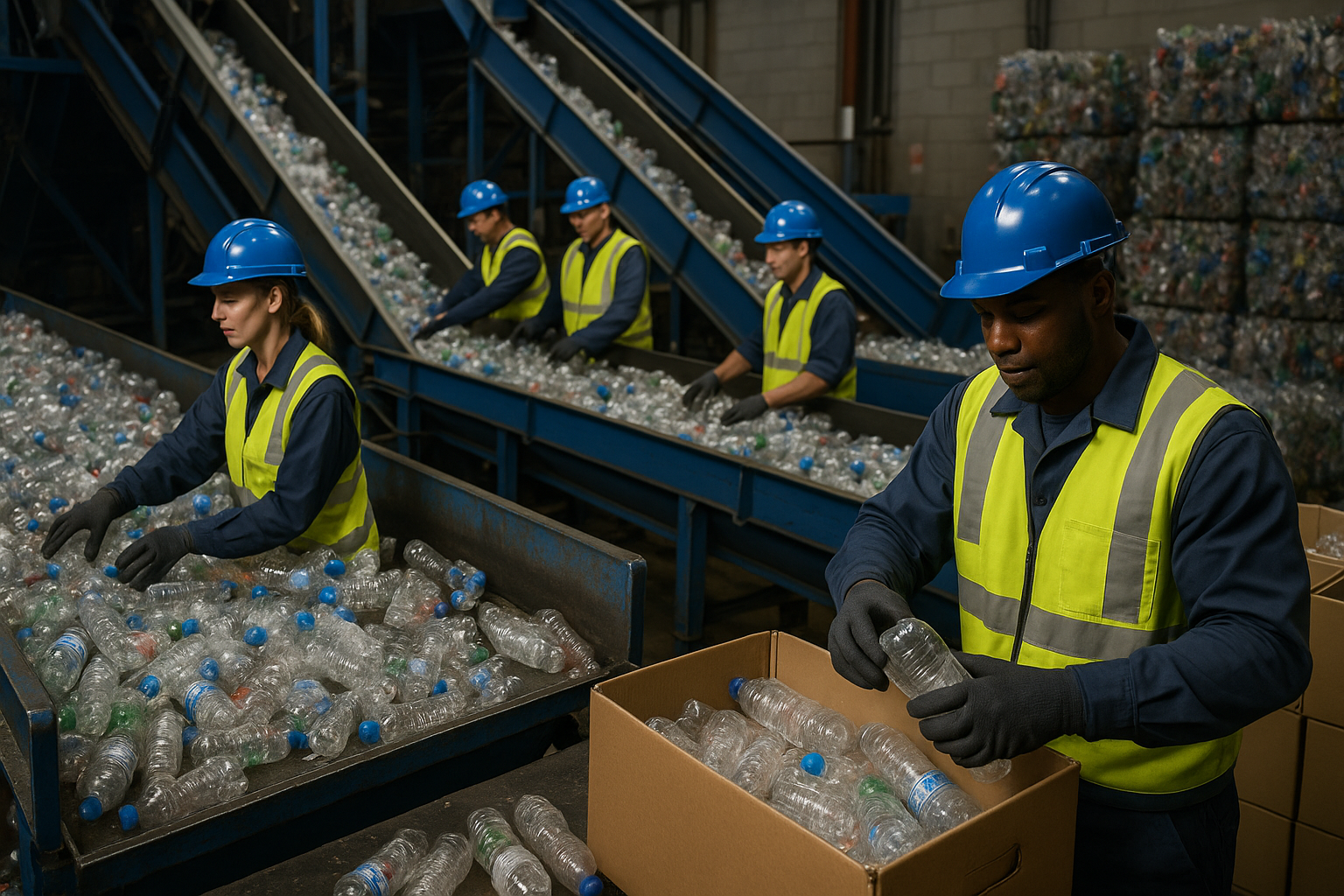Transform Everyday Plastic Into Cash By Recycling
Transforming everyday plastic into cash by recycling not only helps you earn extra income but also contributes significantly to environmental sustainability—browse options now to start making a difference.

Understanding Plastic Recycling: A Lucrative Opportunity
Recycling plastic is more than just an environmentally conscious choice; it's a financially rewarding activity that can help you generate income from materials you might otherwise discard. With growing awareness about environmental issues, the demand for recycled plastic has surged, creating a lucrative market for individuals and businesses willing to participate in recycling programs. By recycling, you can earn money while reducing your carbon footprint, making it a win-win situation.
The Economics of Plastic Recycling
Plastic recycling involves collecting, sorting, and processing plastic waste into reusable materials. This process not only conserves resources but also provides economic benefits. According to the Institute of Scrap Recycling Industries, the recycling industry in the United States alone contributes approximately $110 billion annually to the economy1. By participating in this industry, you can tap into a steady stream of income.
How to Get Started
To begin recycling plastic for cash, you should first identify the types of plastics that are in demand. Common types include PET (Polyethylene Terephthalate) and HDPE (High-Density Polyethylene), which are widely used in products like water bottles and milk jugs. Once you have identified the plastics, you can follow these steps:
- Collect and sort the plastics by type and color to increase their value.
- Clean the plastics to remove any contaminants.
- Find local recycling centers or companies that buy recycled plastics. You can search options online to locate the nearest facilities.
- Negotiate prices and sell your collected plastics.
Many recycling centers offer competitive rates for sorted and cleaned plastics, and some even provide pickup services for large quantities.
Maximizing Your Earnings
To maximize your earnings from plastic recycling, consider the following strategies:
- **Volume Collection**: Accumulate a large volume of plastics to negotiate better prices with recycling facilities.
- **Partner with Businesses**: Collaborate with local businesses that produce significant plastic waste. They may be willing to provide their waste plastics in exchange for a share of the profits.
- **Leverage Technology**: Use apps and websites dedicated to recycling to find the best deals and connect with buyers easily.
In addition to these strategies, staying informed about market trends and prices can help you make more informed decisions and increase your profitability.
Exploring Additional Resources
For those interested in expanding their recycling efforts, numerous resources are available online. Websites like Earth911 and Recycle Nation provide directories of recycling centers and educational materials on recycling practices23. By visiting these websites, you can gain deeper insights into the recycling industry and explore specialized options for more efficient recycling.
The Environmental Impact
Beyond the financial benefits, recycling plastic plays a crucial role in reducing pollution and conserving resources. The EPA estimates that recycling one ton of plastic can save 7,200 kilowatt-hours of electricity, reduce 16.3 barrels of oil, and prevent 30 cubic yards of landfill space from being used4. By recycling, you contribute to a healthier planet and a more sustainable future.
As you explore the options available for recycling plastics, you'll not only discover ways to earn extra income but also become part of a global movement towards sustainability. Whether you're an individual looking to make a difference or a business seeking to reduce waste, recycling plastics offers a practical solution with tangible benefits.